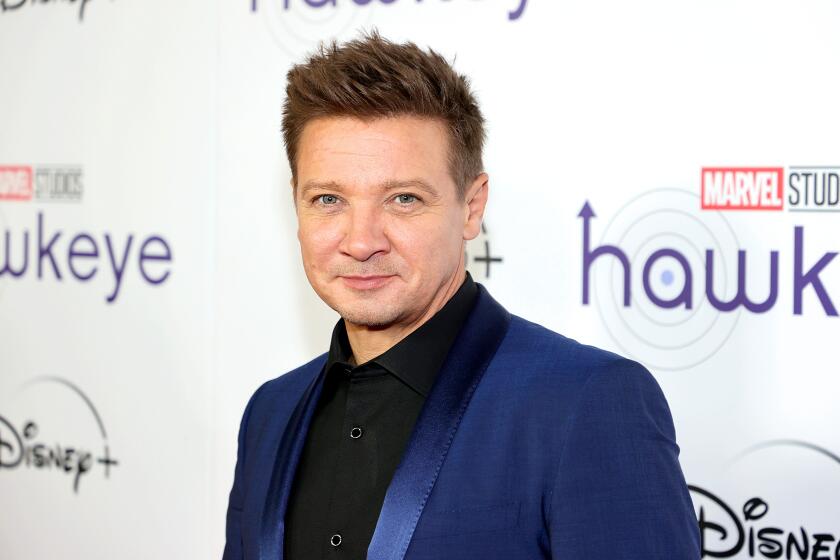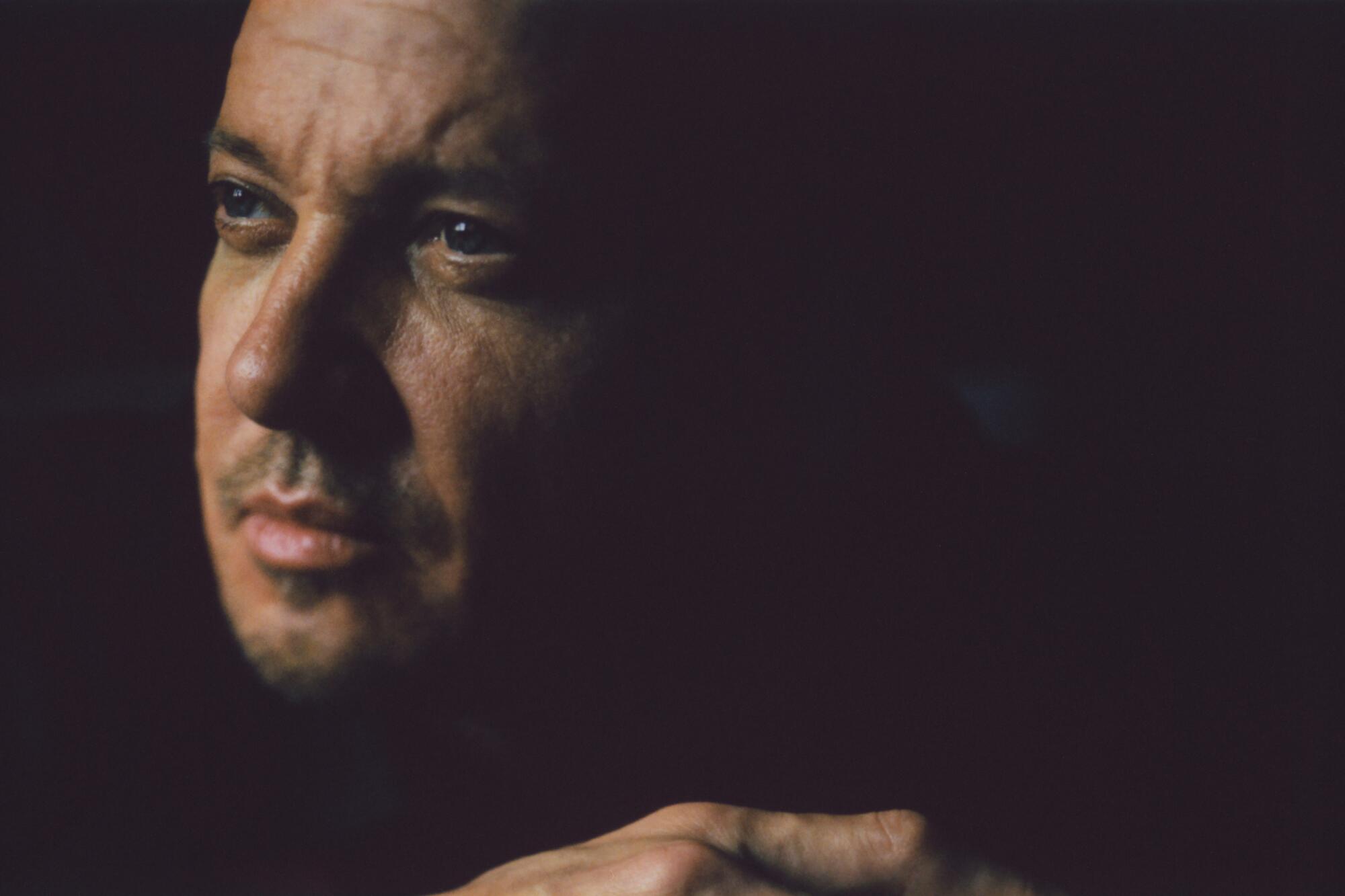
“I relive it every night. It’s in my visions. It’s in my dreams and my waking thoughts,” says Jeremy Renner.
“It” is the accident that nearly killed the Oscar-nominated actor New Year’s Day 2023 as he was clearing the driveway at his home near Mount Rose in Nevada using a massive snowcat. He was thrown suddenly from the 7-ton vehicle, which continued to roll downhill directly toward his nephew, Alex Fries. Renner attempted to jump back into the cab in order to stop it. Instead, he was caught in the machine’s track wheels and run over.
He was left with significant chest trauma, including a collapsed lung, and — at last count — 38 broken bones.

Ah, summer. The time of year when school lets out, days grow long and grills fire up. Even in places like L.A., though, where rain can be scarce, there are plenty of reasons (too hot, too lazy, too sunburned) to stay inside and curl up with some AC. That’s where The Times’ 2024 Summer Preview comes in: As you check out our guides to the movies, TV shows and books we’re looking forward to this season, be sure to read the stories below about some of the most highly anticipated.
“The doctor said I even broke my taint. How do you break a taint?” recalls Renner, his off-color sense of humor evident on a recent morning in Tribeca. The “Avengers” star is in good spirits, speaking with candor and optimism about his near-death experience and odds-defying recovery. There are few obvious physical signs of the ordeal his body endured less than 18 months ago.
Renner, 53, is in town for a brief visit from Pittsburgh, where he is close to wrapping production on Season 3 of “Mayor of Kingstown,” which returns to Paramount+ June 2. In the gritty drama, co-created by Taylor Sheridan and Hugh Dillon, he stars as Mike McLusky, a power broker in a fictional Michigan city that is home to seven prisons.
Renner returned to work in January — “on the anniversary of my death,” as he puts it — marking his first extensive turn in front of the cameras since the accident. Reprising his lead role in the Paramount+ series was not a foregone conclusion. Neither, for that matter, was his survival.
His family, he says, is the reason he’s alive, along with the doctors, EMTs and nurses who cared for him, “and probably a divine intervention as well.”
“It took the collective of all these people. That’s the power of love. It’s a slow burn. Man, I tell you,” he says, his voice breaking. “I can barely speak.”
When the accident occurred, Renner, who has six younger siblings, was spending the holidays with much of his large, tight-knit family, including his 11-year-old daughter, Ava, and mom, Valerie Cearley. Thanks to a monster snowstorm that hit the area, the family had been cooped up inside for several days — and cabin fever was setting in. During a break in the severe weather on New Year’s Day, Renner and “a few of the boys” trekked outside to see if they could head to the ski resort down the road.
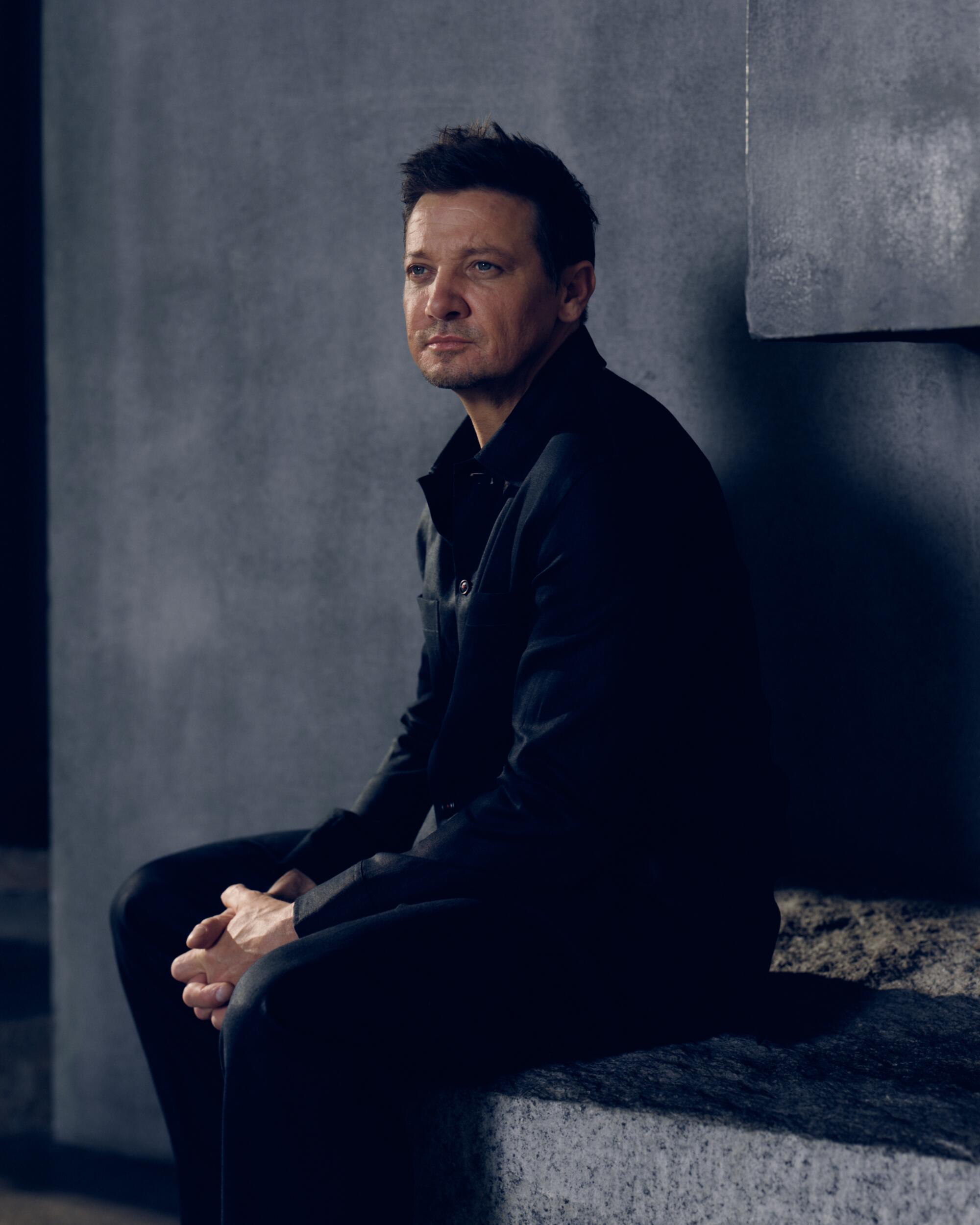
As he lay, injured, in the snow, waiting for EMTs to arrive, Renner did not initially comprehend the gravity of the situation. His focus was on breathing — on summoning enough strength to exhale, then inhale, over and over again. (He later learned his lung had collapsed.) His nephew, who was unharmed, sat with him. Renner did a scan of his body. He could see one eye bulging out of his skull with his other eye, which remained intact. “I’m like, that’s not good,” he says, in a comic understatement. Renner also realized that his legs were twisted and bent in unnatural directions, like a pretzel.
Yet, in the way the brain can sometimes do in moments of intense shock, he had irrational thoughts. He remembers telling himself, “These are just cramps and I can get up and make it back to the house and tell people we’re not going skiing.”
“I was gonna go sit in the tub and soak it off,” he adds, laughing in retrospect at the notion. When he tried to move and was met with excruciating pain, “It really started to settle in, how f— my body was.”
Renner says his heart rate dropped to 18 beats a minute. By the time the EMTs arrived and began to provide first aid, about 25 minutes after the accident, he says he was “getting tired of breathing. And that’s where I was gonna die.”
First responders inflated his collapsed lung and transferred him into a helicopter, which took him to a hospital in Reno. The location ended up being fortuitous: Because of the many nearby ski resorts, the medical team was accustomed to treating traumatic orthopedic injuries. “The doctor was like a master carpenter, and just came in and just put my body back together,” Renner says.
The “Hurt Locker” star remembers waking up in the hospital with a tube down his throat, a patch over his eye and his family at the bedside. “I signed that I love them, and that I was sorry. And then they got a piece of paper and I wrote down, ‘Holy f—, I’m so sorry. I love you all. I love you all so much.’”
Renner says he was in the ICU, heavily medicated and “not in my right mind.” At one point, he became enraged at the sight of a mop and bucket in his bathroom — a sign, as he saw it in his altered state, that the hospital staff was using the space as a janitor’s closet because they assumed he wouldn’t be able to get out of bed.
“‘You don’t think I’m gonna make it out of here, you motherf—s?’” he remembers screaming. “Those poor nurses.”
Dillon, the co-creator and executive producer of “Mayor of Kingstown,” recalls receiving a profane but jocular text message from Renner within a day of the accident — apologizing for screwing up, though he used a more colorful phrase.
“It blunted the shock and, honestly, as soon as I got that text, I thought, ‘He’s gonna be OK,’” says Dillon, who also stars in “Mayor of Kingstown” as a local detective. In a fluke of timing, Season 2 premiered two weeks after Renner’s accident.
While “high as a kite” on painkillers, Renner says he tried to “find sobriety through humor. I was always looking for a joke to crack because I know it requires timing and [the ability] to read the room. And it also just feels good to laugh.”
Jeremy Renner, star of Marvel’s “Hawkeye” series, was airlifted to a hospital after the accident. The location was not disclosed, but his property near Lake Tahoe has been inundated by snow.
Renner jokes that he was indifferent about the possibility of losing a limb or being permanently disabled from the accident: “I want a wooden leg. I want a hook for a hand. I want an eye patch. I’m gonna commit to pirate life. I was so content doing that.” But he says was motivated to get better by his family.
After spending six days in the ICU in Reno, he was transferred to Cedars-Sinai Medical Center in Los Angeles, where another medical team tended to his shattered cheekbones, jaw and eye socket. A few weeks after the accident, he was at home, recovering.
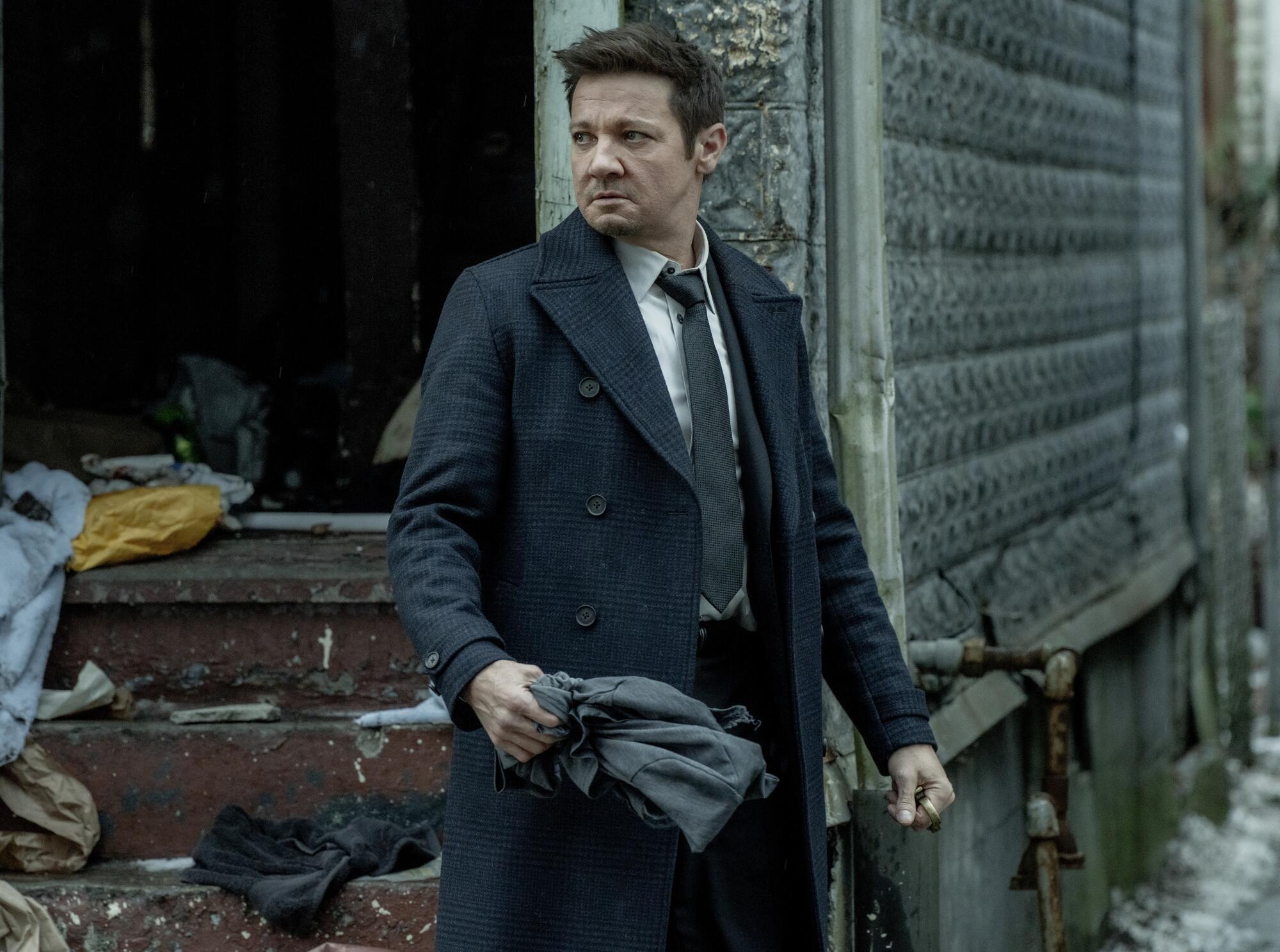
Although he has good health insurance through the Screen Actors Guild, Renner still wound up paying “a lot of dough” for some providers who were out of network.
“But what do I care?” he says. “I’m alive. I’m walking through life with a smile on my face. And there’s nothing that’s ever going to change that. Nothing. It’s impossible for me to have a bad day.”
Renner’s doctors initially said it would take years for him to walk again; instead, within three months, he was walking with the assistance of a cane — something he attributes to being “a stubborn jerk.”
Recovery is easy, he says, “in the sense of all you gotta do is get better. It’s a one-way street. There’s no other avenues to take. It’s not even [like] a piece of Ikea furniture — there are no directions. You go one direction: You get better. How easy is that? Just remember what you did yesterday, or couldn’t do, and then try to do it today.”
He has developed a new relationship with pain, which he likens to the body’s version of a smartphone notification. “They’re just little alarms, saying, ‘Hey, this might burn you,’ or ‘Hey, maybe your leg’s broken,’ but it doesn’t mean anything else. It’s just an alert. I just swipe it, and it goes away,” he says.
Dillon started visiting Renner in L.A. early in his recovery, when he was still in a wheelchair. He quickly sensed that before Renner could return to production, they would need the OK from the family’s real boss: Renner’s mom.
“I felt like a kid going over to his house. We’re asking his mom’s permission, we’re not asking his agent’s permission or manager’s. It’s really very personal,” says Dillon. Once Cearley gave the nod, “It was full steam ahead.”
Renner felt that he would be ready to come back in January — after the holidays, his birthday and the one-year anniversary of the accident had passed. He was eager to work again, yet he also found it strange to return to a fictional world, to the task of playing make-believe, while confronting the humbling physical reality of his recovery.
“To try to create some truth and then get the audience to believe it, while I’m just trying to learn to walk again, to put one foot in front of the other and not get up in agony. I’m doing all these things to find my footing on the planet again,” Renner says. “The idea of going into a fictional world — I have to be honest with you, I had to really consider, Is this something I really want to do?”
During his first week back on the job, Renner says he would sometimes fall asleep in the middle of filming a scene. “They go, ‘And action!’ And I was out. We realized they worked me too hard, too many hours, too many days in a row,” he says. “What I’m willing to do is everything, but what I’m able to do is a different thing.”
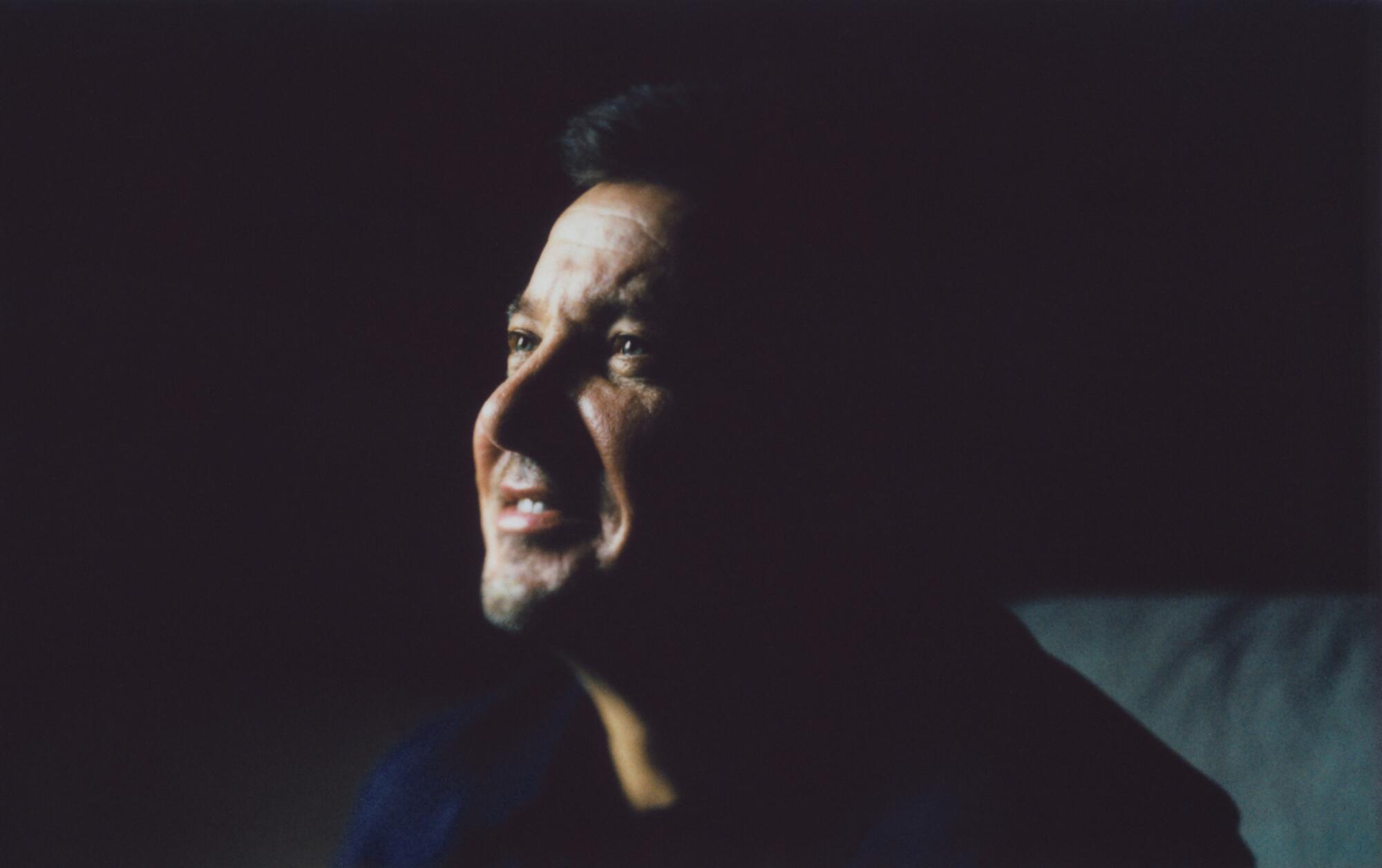
Producers modified the schedule to accommodate his needs. Jet lag is now exceedingly hard on his body, despite just a three-hour difference between the East and West Coast. So rather than flying back and forth to California, Renner remained in Pittsburgh throughout most of the four-month production. He also carved out time to stretch and exercise on set, sometimes between takes.
“They have to treat me like I’m a child actor,” Renner jokes. “The mayor of Kingstown is now like a 14-year-old.”
But the accident has had some unexpected benefits. Renner says he now has a photographic memory, which comes in handy when he’s memorizing dialogue. “The eyeball that came out of my head? I have better vision in that eye than the other eye,” he adds. “I think I’m getting bionic.”
Emma Laird, who stars in “Mayor of Kingstown” as Iris, a sex worker with links to the Russian Mafia, recalls that on their first day back, Renner still had Mike’s trademark swagger and tenacious stride. “It was as if the accident hadn’t ever happened really, when he was on camera,” she says.
“At the start, I would ask how he was and he’d be in a bit of pain, but he never openly complained or moaned. That’s just like a testament to how professional he is. Most actors moan about the stupidest things, [like] having to wait for an hour in their trailer. And he’s had this huge accident and you don’t hear him complaining one bit,” she adds.
“Mayor of Kingstown” is an intense and often violent series that grapples with weighty subjects like mass incarceration, systemic racism and Rust Belt stagnation. Season 3 is just as unrelenting. It opens with Mike at a spiritual low point as he mourns the death of a family member. “There’s a heaviness and a huge change to the character,” Renner says. “And it worked with where I am personally in my life.”
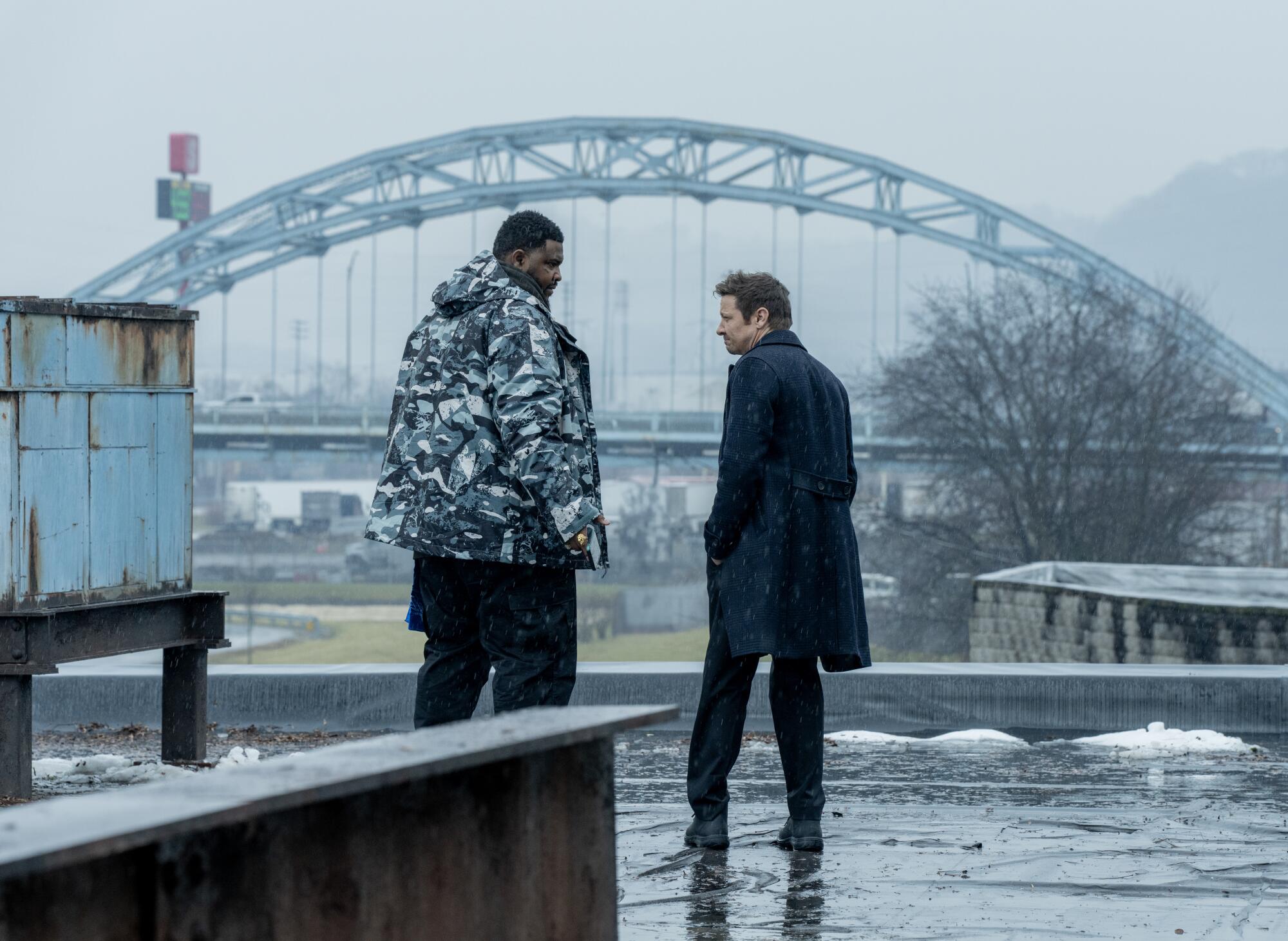
“He’s always been remarkably positive,” says Tobi Bamtefa, who plays Bunny, a drug dealer and local Crips gang leader who is often seen conferring on his rooftop with Mike. “The positivity is now more deliberate. There’s a way about him that is definitely more present, more aware not just of his own self but also how his survival affected everything around him. Talking to him can be quite inspiring.”
In late April, Renner spent the day at Kennywood, an amusement park outside Pittsburgh, with his family and “Mayor of Kingstown” co-stars. Watching Renner enjoy the rides with his daughter and mom, Dillon was struck by how far he had come, not just since the accident but even since the beginning of the season in January. “That guy is in this permanent state of grace,” Dillon says. “I don’t know how he did it. But here we are, and it’s glorious.”
As for what’s next, Renner is weighing his options but now understands, on a visceral level, that “the only currency I have is time.” He is also working on a book about “life and death and recovery and all the things I’ve learned,” he says. “I got a lot of cheat codes.” What kind of “cheat codes,” exactly? For starters, Renner says that nearly dying confirmed something he already believed: “Death is only a rebirth.”
Over the last year and a half, he’s also discovered the importance of reframing the incident as something positive — beautiful, even. He likes to say the snowcat was a beacon, a Bat signal that called his family and friends to action and symbolized their deep love. “It is eternal. It is powerful. And it’s what kept me here.”
More to Read
The complete guide to home viewing
Get Screen Gab for everything about the TV shows and streaming movies everyone’s talking about.
You may occasionally receive promotional content from the Los Angeles Times.
